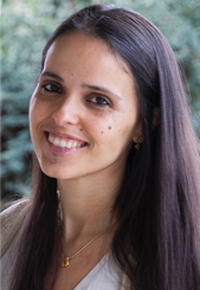Seven Portuguese scientists awarded ERC Starting Grants

In September, the European Research Council (ERC) announced the awarding of Studentships . The results reveal the recognition of the work of seven more Portuguese researchers, who were awarded these Studentships for top-level research funding. Five are developing research projects in Portugal, two are conducting research in other European countries, and all have been FCT fellows or researchers.
The Portuguese winners of the Starting Grants were Ana Patrícia Gonçalves, from the University of Minho, Miguel Cardina, from the Center for Social Studies (CES) at the University of Coimbra, Francisco Freire, from the Center for Research in Anthropology (CRIA), Pedro Barquinha, from the Institute for Nanostructures, Nanomodeling, and Nanofabrication (CENIMAT/I3N, FCT NOVA), Joaquim Alves Gaspar, from the Faculty of Sciences of the University of Lisbon (FCUL), Beatriz Viçoso, from the Institute of Science and Technology Austria, and Bruno Correia, from the École Polytechnique Fédérale de Lausanne (Switzerland).
Ana Patrícia Gonçalves conducts research in mathematical sciences and her project is entitled "Hydrodynamic Limits and Equilibrium Fluctuations: universality from stochastic systems." She aims to analyze and characterize the universality of the macroscopic behavior of certain physical systems, using underlying microscopic stochastic processes, known as particle systems. The objective of the project is to obtain macroscopic laws, namely partial differential equations (stochastic), which govern the space-time evolution of the thermodynamic quantities of these systems.

Miguel Cardina is interested in colonialism, anti-colonialism, and colonial warfare. His study "Crossed Memories, Politics of Silence: The Colonial-Liberation Wars in Postcolonial Times" has as its main challenge the production of innovative knowledge about the memories of colonial and liberation wars. He will seek to deepen this theme, which he has previously addressed in a study conducted only in national territory. This Studentship enable the study to be extended to Angola, Mozambique, Guinea-Bissau, Cape Verde, and São Tomé and Príncipe. The project will contribute to confronting a still traumatic past, a consequence of the heavy legacy left by European colonialism.

Francisco Freire, an anthropologist with a particular interest in the study of Islam and Mauritania, proposes an analysis of the reconfigurations established in the political and social vocabulary of the Western Saharan region—southern Morocco, Western Sahara, and Mauritania—from the "post-empire" to the present day. The project approved by the ERC is entitled "Critical Approaches to Politics, Social Activism, and Islamic Militancy in the Western Saharan Region (Mauritania, Western Sahara, Southern Morocco)."

Pedro Barquinha, who holds a degree in Materials Engineering from FCT NOVA, where he is currently an Assistant Professor in the Department of Materials Science, submitted the project "TREND – Transparent and flexible electronics with embedded energy harvesting based on oxide nanowire devices" to Call . This project aims to create truly intelligent flexible and transparent surfaces with information processing capabilities and self-powered. Its construction will use nanocircuits based on multicomponent oxide nanowires, starting from sustainable and recyclable materials, with low-temperature processing compatible with large-scale production. Its development will enable innovative products in areas such as consumer electronics and even wearables for medical applications.

Joaquim Alves Gaspar's research project, entitled "The Medieval and Early Modern Nautical Chart: Birth, Evolution, and Use," aims to resolve a series of fundamental and unanswered questions in the history of cartography, using innovative techniques—cartometric analysis, numerical modeling, and multispectral analysis of charts—to complement traditional methods of historical research. The researcher also hopes to highlight the enormous contribution made by the Portuguese to scientific knowledge of the world during the Age of Discovery and maritime expansion.

In Vienna, Beatriz Viçoso is interested in understanding various aspects of sex chromosome biology and the evolutionary processes that shape their unique characteristics, with her research focusing on "Prevalence and influence of sexual antagonism in genome evolution." Her project will be carried out at the Austrian Institute of Science and Technology.

Bruno Correia leads research at a protein design and immunoengineering laboratory in Switzerland. His research project, entitled "Computational Design of Novel Functional Proteins for Immunoengineering," is a multidisciplinary proposal, where computing is intertwined with experimentation (biochemistry, structural biology, and immunology), in which computational design is used in the search for new functional proteins for immunoengineering. The results of this study could have innovative effects in terms of discovering new therapies: vaccines and cancer immunotherapy.
These Studentships , aimed at researchers with 2 to 7 years of post-doctoral experience, were awarded under the "Excellent Science" pillar of Horizon 2020, the European Union (EU) Research and Innovation Program under the responsibility of Commissioner Carlos Moedas. Portuguese researchers will receive Studentships ranging from €1.1 million to €1.6 million, totaling almost €10 million. In this Call , 325 top scientists across Europe Call awarded a total investment of €485 million in Studentships .